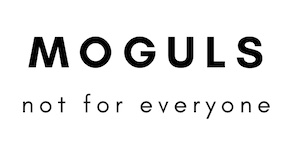What caught my eye this week.
While the world potentially inched closer to World War 3 this week, Bitcoin fans had a more exciting horizon in mind. One where their love-hate digital asset finally boasted a six-figure price tag.
Some $133m spent in election lobbying says Donald Trump will be a crypto-friendly president. Bitcoin was already having one of its bursts of enthusiasm, but Trump’s reelection was a lift-off moment:

Similarly, the then-imminent approval in the US of Bitcoin ETFs in early 2024 we talked about in January got this rally started. But any snapshot of a super-volatile asset like Bitcoin only tells half the story.
For instance Bitcoin’s price has more than doubled since February 2021, when I made the case for even sensible investors holding 1-5% in a diversified portfolio.
Great – but not long after that article Bitcoin lost around three-quarters of its value in a peak-to-trough fall that bottomed out in early 2023.
Or go back further in the Monevator archives and you’ll find me suggesting Bitcoin was probably in a bubble in December 2017. By some fluke that post did roughly coincide with a peak. The Bitcoin price went on to again slump 75%, this time to under $4,000.
But of course the price is now up five-fold since that particular bubble-frenzy. So the smart – or strategically dumb – move was arguably to hold – I mean HODL – throughout.
Fortunately my 2017 article was very open-handed about where Bitcoin could go next. Amid much prevarication I wrote:
A price collapse wouldn’t necessarily mean the end of bitcoin or blockchain, any more than the bursting of the Dotcom boom halted the Internet.
Bitcoin could go on to be a household name for the rest of our lives, something we all might use. Perhaps it is the future of currencies?
Maybe it is a new store of value?
Seven years later I’d say almost the same thing.
True, as I’ve written before I think the longer Bitcoin lasts the longer it will last. There’s a self-reinforcing quality to every climb out of the dumpster. So I judge it to be in a much stronger position than 2017.
All the same, this latest mania looks bubbly once again.
Some coins are gonna make it more than others
MicroStrategy is a poster child for the current Bitcoin bullishness. Founder and Bitcoin evangalist Michael Saylor has basically turned his software company into a Bitcoin fund with a side hustle in writing code.
It’s been an incredibly profitable strategy. MicroStrategy shares are up nearly 2,700% over the last five years alone. Approximately none of that is due to it selling software licenses.
MicroStrategy now has about $33bn worth of Bitcoin on the balance sheet. But as I tweeted on Thursday, the trouble is the market prices MicroStrategy’s stash at nearer $300,000 than $100,000.
Commenting on Bluesky:

For once the world listened. Yes, the very next day Microstrategy shares had cratered to under $400!
Okay, or ‘perhaps’ it was actually an announcement by the infamous short-seller Citron Research that it was betting against the stock that sent the shares south.
Citron’s position is the same as mine – no argument in particular here with Bitcoin, but no sensible reason why MicroStrategy’s coins should be worth three-times everyone else’s.
Adding to the personal drama for me, I actually own a little bit of MicroStrategy! Indeed I began the year with a fairly decent chunk, as a proxy for betting on the post-ETF approval Bitcoin price. But I’ve sold it down as the price has climbed throughout 2024.
Which – to be clear for anyone who struggles with graphs – was not the way to maximise my gains.
Number goes up. Right?
Anyway, MicroStrategy fanboys have an explanation for the to-me crazy premium on the stock, which Jack Raines summarises on Sherwood as:
Think about it like this: if MicroStrategy holds ~$30 billion in bitcoin and the company’s worth ~$100 billion, by issuing $1 billion in convertible debt (or equity) to buy bitcoin, its bitcoin holdings increase by ~3% while equity is only diluted by ~1%.
Buying pressure sends the price of bitcoin higher, MicroStrategy’s stock continues to increase as bitcoin grows more valuable, and the cycle repeats.
The crypto bros are calling this a ‘money glitch’. You don’t have to search hard to find Tweets and even videos where they claim this ‘perpetual money machine’ could be the solution to everything from student debt to solving the government deficit.
I know…
Anyway, older hands like me call it a ‘roll-up’.
And there’s nothing new about selling your own highly rated equity to buy low-rated stuff that gets re-rated on your balance sheet.
Sometimes it works for a long time and the roller-upper is able to eventually transition into creating enduring value. (e.g. Think companies like Constellation or WPP or even Berkshire Hathaway at a push).
But very often it blows up. (Numerous UK small-caps over the years, or the Valeant roll-up that caught hedge fund manager Bill Ackman out.)
Time will tell with MicroStrategy. But I hope Saylor is being very careful with its debt, because the one thing we know about Bitcoin is that the price does not move in a straight line.
Who’s zooming who
Monevator favourite Cullen Roche did a good job of explaining why MicroStrategy’s, um, strategy is both brilliant – you can’t argue with Saylor’s returns – and something that will only work until it doesn’t:
To some degree it’s all very Ponzi-like. MSTR is selling bonds to fund purchases of BTC and those purchases help drive the price of BTC up which allows MSTR to finance more bonds.
It’s magnificently brilliant as long as the price of BTC keeps going up. As long as it keeps going up.
Many things can be true at once.
You can believe that Bitcoin has established itself as a long-term asset, and still think the price looks frothy.
You can salute MicroStrategy’s lucrative capital allocation policy while believing it’s sitting on a box of nitroglycerine.
And you can think Trump will be good for crypto while wondering whether he’ll (reliably) be this good.
Heck, you can think Bitcoin is a resource-burning scam for dupes while still profiting from trading it.
As Finumus wrote in his excellent Moguls piece this week:
I’ve learnt not to let my beliefs get in the way of a profit.
Alas UK regulators are letting their beliefs get in the way of UK investors making a profit.
I have mostly owned MicroStrategy because as a UK investor I can’t buy a Bitcoin ETF in my ISA due to what seems to me an arbitrary decision not to approve such ETFs for retail investors in the UK.
(And let’s face it, with capital gains tax going the way it has, Bitcoin holdings kept outside of ISAs are now pregnant with gains headed to HMRC…)
Yet the same UK regulators enable us to buy triple-levered ETFs – on MicroStrategy no less – on some platforms.
And of course we’re free to buy Bitcoin outside of tax shelters.
I fail to see a consistent logic.
Too hard to HODL
The total value of all Bitcoin is currently around $2 trillion. While I don’t entirely dismiss that figure ending up closer to zero, I also think it’s very plausible that – on the ‘store of value’ thesis – that Bitcoin’s total value could eventually match gold’s ‘market cap’, which is was around $17 trillion last time I looked.
If that happens then the UK’s current regulations could cost Britain hundreds of billions if we collectively under-own Bitcoin as a result.
Finally, to be clear, all the environmental worries about Bitcoin remain legitimate concerns, the crypto space still feels over-hyped and under-necessary, and nobody needs to own any Bitcoin if they don’t want to.
Many things can be true at once.
Have a great weekend.






